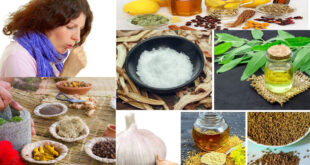How to Reduce Pleural Effusion
Pleural effusion is a condition, in which one develops an excessive amount of fluid around the lungs between the parietal and visceral pleura. The space between the tissues lining the lungs and chest wall is called pleural space. When fluids build up in the pleural cavity it is called pleural effusion. Pleura is a thin membrane, lining the surface of the lungs and inner lining of the chest wall.

When fluid accumulates in the space between the various layers of pleura, it is called pleural effusion. Some amount of watery fluid is normally present in the pleural space, it facilitates smooth movement of lungs in the chest cavity while breathing. Normal quantity of fluid present in the pleural cavity is about 15 – 20 ml.
There are many causes responsible for pleural effusion.
Causes of pleural effusion
• Heart failure, liver disease, and kidney disease
• Cancers like lung cancer and certain infections like pneumonia and tuberculosis
• Autoimmune conditions like lupus and rheumatoid arthritis
• Pulmonary embolism, where an artery to the lung is blocked
Symptoms of pleural effusion
One may start experiencing the following symptoms when your pleural effusion is moderate or severe. Mild pleural effusion may not present any symptoms. One may experience any or all of the following symptoms.
• Chest pain
• Fever
• cough
• Shortness of breath because of excess fluid impairing breathing and limiting the expansion of lungs
• Difficulty in physical activity
Diagnosis of pleural effusion
You should immediately consult your doctor if you experience any of these symptoms. Your doctor shall diagnose pleural effusion after a detailed physical examination. Imaging tests like Chest X-ray, CT scan (computed tomography), Ultrasound helps in locating the fluid and getting the sample as well. Pleural fluid analysis, bronchoscopy and pleural biopsy may be performed to determine the cause of pleural effusion.
Types of pleural effusions
There are two main types of pleural effusions
• Transudative pleural effusions
It is common to post congestive heart failure, in this type of fluid leak into the pleural space. It is caused by low protein count in blood or increase in pressure in blood vessels. The fluid present in Transudative pleural effusion is similar to the normal fluid present in pleural space. This type usually does not require drainage.
• Exudative pleural effusions
It is caused by a blockage in blood vessels and lymph vessels, tumor, inflammation or any injury to the lungs. It is common in pneumonia and lung cancer. The in exudative pleural effusion, the fluid present contains protein, blood, inflammatory cells and bacteria. Treatment for this type of pleural effusion requires drainage.
Treatment of pleural effusion
Treatment is always determined after the diagnosis of the underlying cause and evaluation of the severity. The medical condition associated with pleural effusion should be treated. Minor pleural effusion is often treated by itself. Generally, pleural effusion can be easily treated by draining the fluid from the chest cavity. There are certain procedures which help in treating pleural effusions, like – thoracentesis, tube thoracostomy, pleural drain, and Pleurodesis may be performed in serious cases.
There are certain complications associated with pleural effusions, such as – lung scarring, pneumothorax, empyema (collection of pus in the pleural cavity) and sepsis.
Pleural effusion can be sometimes prevented by timely treatment of underlying causes. Likewise, in certain cases, pleural effusion is not preventable.
There are certain home remedies which can help you in faster healing, like –
Garlic
Garlic contains an organosulphur compound known as Allicin, it helps in multiple diseases including pneumonia and cold. Similarly turmeric, holy basil, ginger, caraway (meridian fennel) are also beneficial in increasing your immunity.

You should never replace medications with home remedies, because home remedies only help in faster healing they should always be taken under your doctor’s recommendation.
Dr Reena Prajapat is a dentist, she post graduated in hospital management from Apollo Institute of hospital Administration, Hyderabad. Her strong belief in natural and home remedies lead her to Pursue bachelor in naturopathy.
 Health Beauty Tips
Health Beauty Tips







